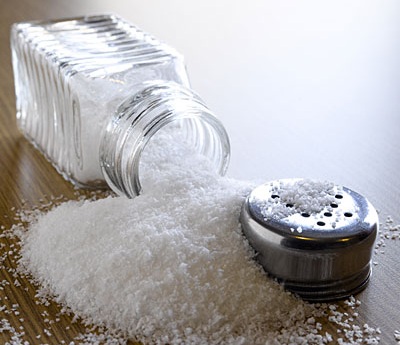Sodium is one of the essential electrolytes to balance the bodily fluids. Along with sodium, other electrolytes are also present in the serum to maintain the balance of fluids and ions such as chloride and potassium. Sodium is required for the regulation of several biological functions such as fluid and electrolyte balance, transmission of nerve impulses. However, it is imperative to understand that all biological activities are dependent on the concentration of sodium in the body. Too high or low concentration of sodium may aggravate the risk of serious complications leading to shock or coma.

Does Sodium Make You Fat?
Yes, excess sodium can cause serious gain in body weight (approximately 2 to 3 pounds) within a week. This increase in weight is observed because of the fluid retention. Too much sodium increases the levels of interstitial fluid and causes swelling on face and other parts of body. When the sodium levels reach normal concentrations, the weight problem is generally resolved. Aged persons and people of Africa-American decent are at a greater risk of sodium-induced weight gain.
Other Health Risks of Excess Sodium
Although the question “does sodium make you fat” has been answered, there are other health risks of consuming too much sodium that you need to know.
1. Hypertension
Increased sodium intake from diet is the foremost cause of hypertension.Sodium has a special water regulatory system through which water molecules are transported in the vessels, increasing the blood volume and pressure of blood on arteries.
Different studies conducted on sodium intake and hypertension reveal that the incidence of cardiovascular diseases can be decreased for up to 25 percent if diet intake of sodium is decreased.
2. Abnormal Heart Development
Excess sodium intake can lead to abnormal development of the heart. High blood volume can cause left ventricular hypertrophy, leading to the enlargement of the heart and the increases of the workload of cardiac muscles. The abnormal heart development due to excess sodium intake is also one of the leading causes of heart failure.
3. Loss of Bone Density
Sodium antagonizes the absorption of calcium from blood.As a result, the resorption of calcium from bones to blood causes an increase in calcium levels in blood and decreases calcium levels in bone matrix. This condition is one of the potential causes of osteoporosis and brittle bones.
4. Kidney Problems
Excess sodium and calcium may accumulate in body and causes a stress on kidneys for excretion. As the filtration load increases, the efficiency of kidney to clear body fluid decreases.
According to multiple researches, it is estimated that persons who eat more salty food are on a greater risk to develop renal diseases. An increase in blood pressure due to excess sodium intake can exacerbate the renal condition.
5. Esophageal Acid Reflux Syndrome
Sodium ion has a greater influence on acid and base balance of body. This imbalance in electrolyte system can initiate heart burns and flatulence.Incidence of esophageal acid reflux syndrome is increased due to increased sodium intake. This condition may lead to carcinomas and gastric ulcers.
6. Hormonal Imbalance
Increased sodium intake is one of the major causes of electrolyte imbalance. Some of the most common problems include loss of nerve conduction, muscle cramps, dizziness, nausea, shakiness and impaired sensory response. Studies have also revealed that high sodium intake in diet can cause anxiety and depression.
Tips to Reduce Sodium Intake
Although the answer to “does sodium make you fat” is yes, there are ways to decrease sodium intake in your daily diet.
1. Cook It Yourself
Pre-packaged and canned cooked foods contains high amount of sodium. One of the best ways to reduce sodium is to cook the food on your own way.Selection of fresh items such as fresh poultry, vegetables and fruits should be done. If using any canned vegetables,opt for low sodium canned ones.Baked potatoes with low salt and brown rice can be served as side line.
2. Check Food Label
The amount of sodium is usually given at the label of the product.Label check can help in reducing the sodium intake. Opt for food products which contain no sodium (less than 5 milligrams of sodium), low sodium food (less than 35 milligrams of sodium), or salt free food.
Food agents such as soy sauce, prepared broths, seasoned salts, ketchup and barbecue sauce already contain high amounts of salt in it, so excessive use must be avoided.
3. Replace Salt with Herb and Spice
Salt is recommended to be replaced with other herb or spice. A list of herbs and spices which can easily be added as a replacement of sodium such as garlic and ginger powder, pepper, tarragon, dry mustard, oregano, cilantro and bay leaf.
4. Other Cooking Tips
Does sodium make you fat? Yes, so you can replace sodium with the tips below:
- Opt for mozzarella cheese or low sodium cheese.
- Replace salted butter with unsalted butter.
- Use lemon or orange juice for marinating meat, such as chicken and pork.
- Simmering of carrots in nutmeg decreases the sodium content in body.
- Sprinkle some fresh parsley on potatoes before baking.
- Add freshly crushed chili powder to corns.
- Add fresh garlic in pasta and toss with it.
